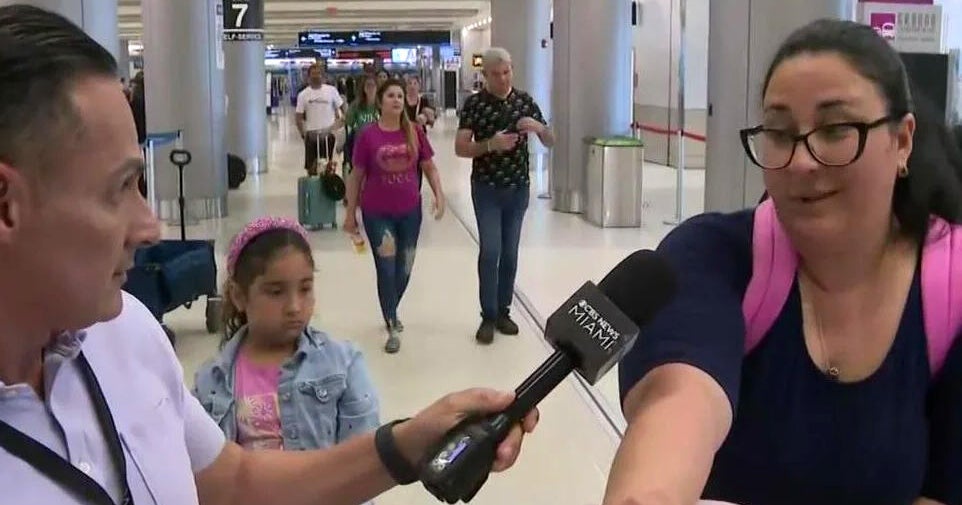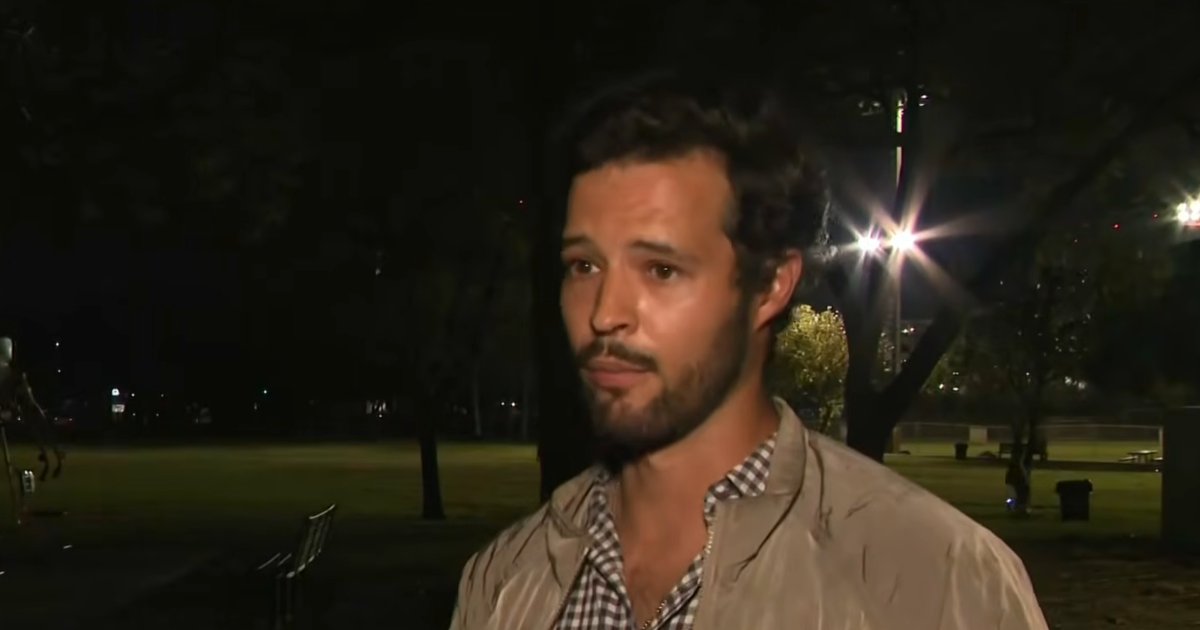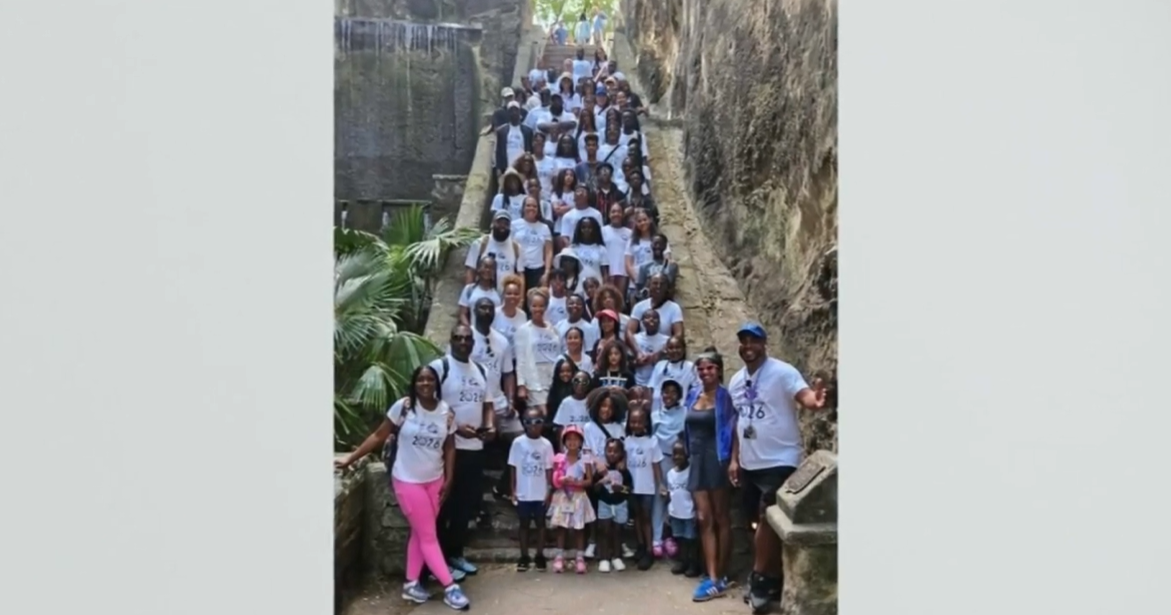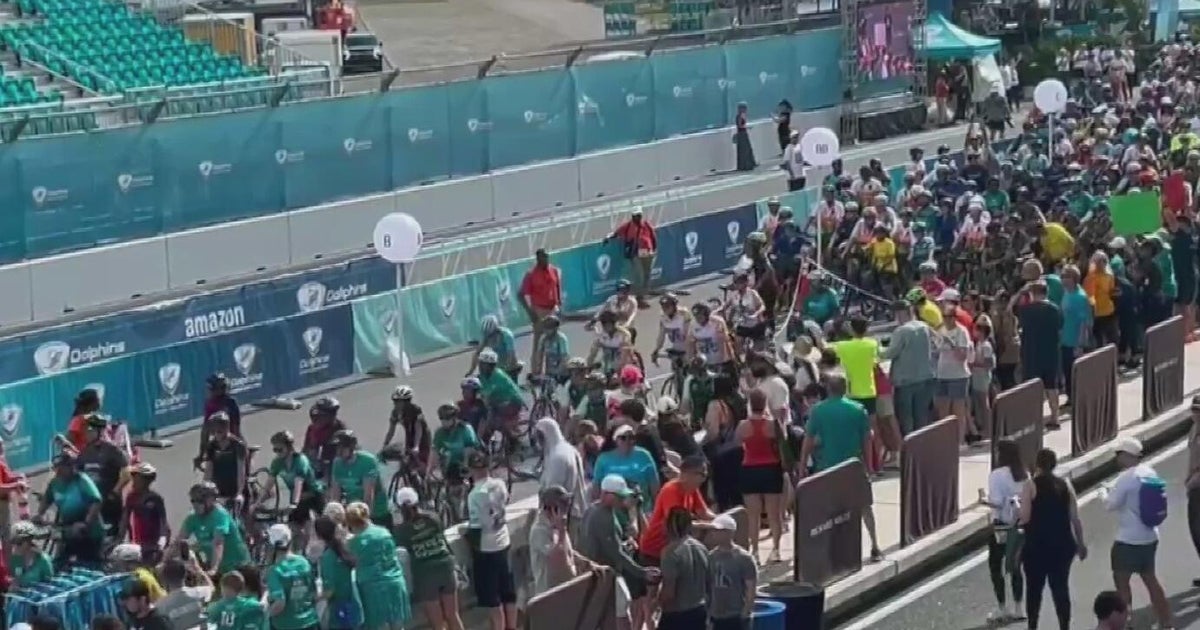The Trump administration’s newly expanded travel ban took effect Monday, triggering confusion and concern among travelers at Miami International Airport — especially those with ties to Cuba, Venezuela and Haiti.
The ban, which applies to nationals from 12 countries and imposes partial restrictions on several others, has left many South Florida residents with family abroad worried about their ability to reunite with loved ones.
Cuba is one of seven countries with partial restrictions, on the same list is Venezuela. The full travel ban applies mainly to Arab and African nations, but it also includes Haiti from this hemisphere.
The first day of implementation brought mixed experiences for travelers, some of whom were questioned by customs agents, while others passed through without issue.
Travelers from Cuba, Venezuela and Haiti express fear and frustration
Katheleen Areas, who frequently travels to Havana, said the ban has derailed her plans to bring her mother to the U.S.
“That was my plan, but now with these new restrictions, bringing her to the U.S. is now out of the question,” Arias, who is a U.S. resident, told CBS News Miami.
She said her long-term goal was to bring her mother to South Florida under the family reunification plan, but she said that now that is only a dream.
Alexis Alvarez, a U.S. resident who just returned from Cuba, said he was surprised by the lack of questioning upon arrival.
“They didn’t ask me anything today, not even the usual secondary screening,” said Alvarez, who is applying to become a U.S. citizen. But his relief is clouded by concern for his family.
He said his family in Santiago is concerned about the new travel restrictions.
“My attorney told me I cannot bring my wife and son any time soon. It’s a shame,” Alvarez said.
New travel restrictions could block thousands of visas
The restrictions vary by country. While Cuba and Venezuela face partial bans due to what the U.S. government calls “inadequate vetting procedures,” Haiti is subject to the full travel ban. Haitian travelers reported more scrutiny at the airport.
“They checked to confirm whether my visa was valid under the new rules,” said Naray Llany, a Haitian national with a tourist visa issued three years ago. He said customs agents asked about the purpose and duration of his trip.
The Department of State said currently valid visas will not be revoked, but individual customs officers retain discretion at the border.
According to the U.S. government, both Cuba and Venezuela have deficient screening and vetting processes to properly identify individuals entering the U.S.
“For those of us who have family in Cuba, this is harsh. My family did not have a visa and now they can’t get one,” said a woman who did not want to reveal her identity as she headed to Havana.
President Trump has defended the travel restrictions as necessary to protect national security.
“It’s about making sure we’re enforcing our laws,” a spokesperson said.
Still, critics argue the policy disproportionately affects families. One Cuban woman heading to Havana said her relatives back home have now lost all hope of securing a visa.
“They don’t have one, and now they won’t get one,” she said.
According to the American Immigration Council, the updated travel ban could impact up to 34,000 immigrant visas and more than 125,000 non-immigrant visas.



